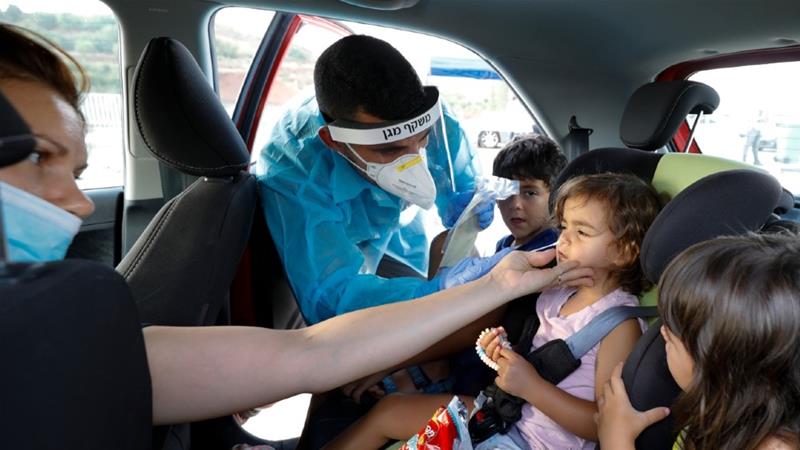
Israel to impose second lockdown as coronavirus cases surge
Three-week lockdown starting Friday afternoon will last through the entire Jewish holiday season.
Israel will enter a three-week nationwide lockdown, starting Friday, to curb the spread of the novel coronavirus after a second-wave surge in new cases.
Prime Minister Benjamin Netanyahu on Sunday announced the lockdown ahead of the Jewish holiday season, which starts with the Jewish New Year on September 18 and ends with the Tabernacles holiday on October 9.
"Our goal is to stop the increase, to reduce the contagion," he said.
Last week, the daily rate of new COVID-19 cases crossed 4,000 for the first time since the pandemic reached the country in February, prompting the second lockdown.
During the lockdown, Israelis will have to stay within 500 metres of their homes but can travel to workplaces that will be allowed to operate on a limited basis.
Schools and shopping malls will be closed but supermarkets and pharmacies will remain open.
The public sector will operate with fewer staff, but non-governmental offices and businesses will not have to close, as long as they do not accept customers.
Indoor gatherings would be limited to 10 people and outdoor gatherings to 20, meaning prayers at synagogues would be severely impacted.
It remains to be seen what impact this lockdown will have on protests against Netanyahu that have entered their 13th week.

Israel's finance ministry said the lockdown will cost the economy, which has slipped into a recession in the wake of the pandemic, an estimated 6.5bn shekels ($1.88bn).
Netanyahu, who has faced increasing criticism over his handling of the coronavirus crisis, said the finance minister has been asked to come up with a new economic package to assist businesses hit by the lockdown.
On Sunday, Housing Minister Yaakov Litzman of the ultra-orthodox United Torah Judaism party resigned in protest of the lockdown's timing, which he said was an affront to Israel's Jews.
Israel had declared an even tighter lockdown in March when the virus first arrived, after which daily cases dropped to low double digits among a population of nine million.
Since the outbreak began, the country has reported more than 156,000 cases and 1,119 deaths.